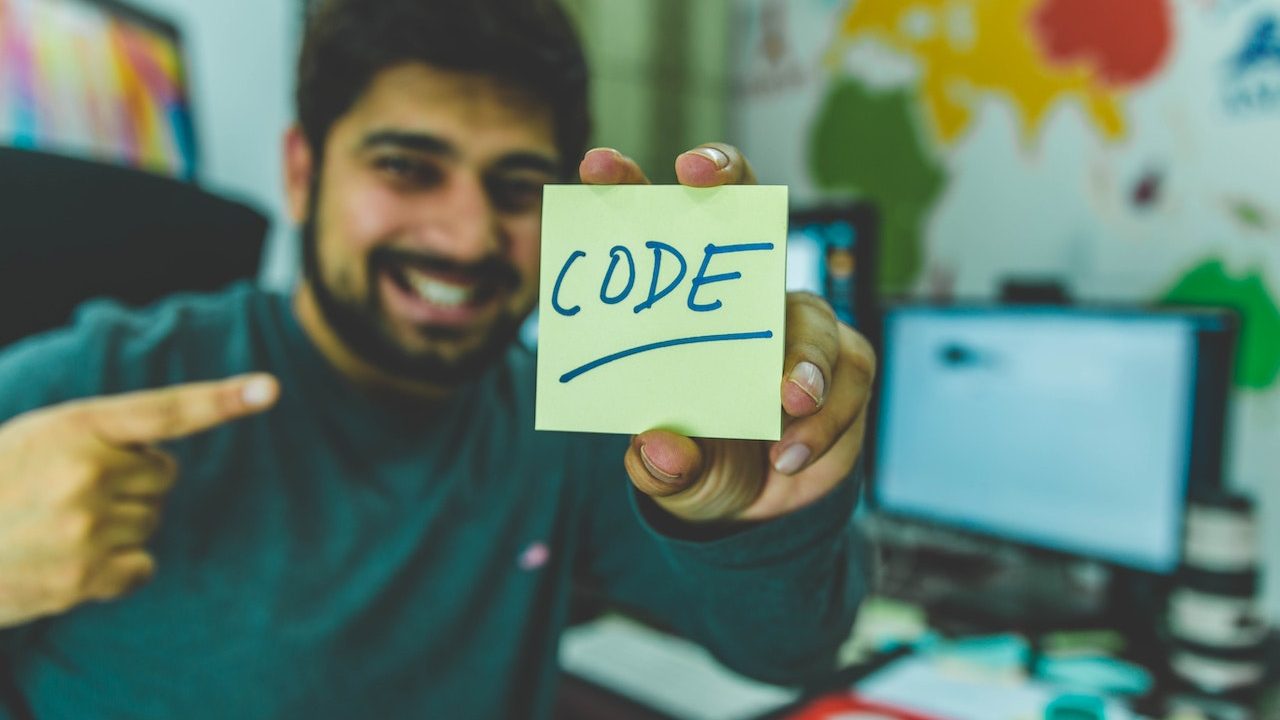
A Guide to Become A Competitive Programmer
Not everyone wants to know how to become a professional programmer, and many people around the world don’t like programming. However, everyone is doing programming every day without knowing that. And how is that? Solving techniques for a problem is programming. Those who solve programming problems through programming languages are called computer programmers, and developers. It can seem like a daunting and overwhelming task, but don’t be intimidated!
In this article, we’ll provide you with an in-depth, step-by-step guide on how to become a successful programmer. We’ll cover everything from what coding languages you should learn to tips for acing job interviews. So if you’re ready to take the plunge and program your way into success, then let’s dive in!
Table of Contents
Introduction to Programming
Programming is the process of teaching a computer how to perform specific tasks. This can be done by writing code, which is a set of instructions that tell the computer what to do.
Code can be written in different programming languages, each of which has its own syntax, or rules. Once code has been written, it must be compiled, or translated, into a form that the computer can understand and execute. Compiling code can be done using different tools, depending on the programming language being used. For example, C++ code can be compiled using Visual Studio.
Once code has been written and compiled, it can be run on a computer to test whether it works as intended. If there are any errors in the code, they will need to be fixed before the program can be used. Programming is a complex process, but it is possible to learn how to do it with enough practice. There are many resources available online and in libraries that can help you get started with learning to program.
Different Programming Languages and Their Uses
There are a variety of programming languages available, each with its own strengths and weaknesses. The most popular programming languages are Java, Python, C, and C++.
Java is a versatile language that can be used for developing a range of applications, from simple web-based programs to complex enterprise systems. Python is a popular choice for scripting and rapid application development, while C++ is often used for low-level system programming or high-performance computing.
Other less commonly used programming languages include Perl, Ruby, and Objective-C. Each language has its own unique features and syntax, so it’s important to choose the right language for the task at hand.
Learning Resources for Beginners
If you’re just starting out as a programmer, you might wonder what resources you need to get up to speed. Thankfully, there are plenty of learning resources available for beginners. In this section, we’ll take a look at some of the best options for getting started with programming.
One great option for learning programming is Codecademy’s Learn to Code course. This course covers all the basics of programming, and it’s perfect for beginners. Another excellent resource is The Coding Train, a YouTube channel that offers concise, step-by-step video tutorials on programming concepts.
If you want to learn more about specific programming languages, check out resources like Learn X in Y Minutes (where X is the language you want to learn) and SoloLearn’s Codelabs (which offer interactive exercises for popular languages). And finally, don’t forget about Stack Overflow: It’s not just a place to ask questions about code; it’s also a huge repository of code snippets and examples that can be extremely helpful when you’re starting out.
How to Develop Good Problem-Solving Skills
If you want to become a professional programmer, you need to develop good problem-solving skills. This includes being able to identify the root cause of a problem and then finding an effective solution.
There are a few different ways you can go about developing good problem-solving skills. One is to simply practice solving problems on a regular basis. This can be done by working through practice exercises or by taking on real-world challenges.
Another way to develop good problem-solving skills is to study how others have tackled similar challenges. This could involve reading books or articles on the subject or even watching video tutorials. By seeing how others have approached and solved problems, you can get some insights into effective techniques that you can use yourself.
Finally, it’s also important to keep up with the latest advancements in your field. As technology and programming languages evolve, so do the types of problems that need to be solved. By keeping up with the latest trends, you’ll be better equipped to deal with whatever challenges come your way.
Tips on Becoming a Professional Programmer
In order to become a professional programmer, there are a few things you need to do.
- First, you need to get a degree in computer science or a related field. However, getting a degree in computer science and engineering department might not make you a professional and competitive programmer. It’s you and your will, whether you want to achieve it or not.
- Second, you need to find a job at a company that specializes in programming.
- Finally, it would help if you kept up with the latest trends and technologies in the programming industry.
Determination and Dedication Needed to Succeed
Determination and dedication are two key qualities that are needed by anyone who wants to become a professional programmer. It can be a difficult and challenging field, but it is also extremely rewarding.
The first step to becoming a professional programmer is to get a degree in computer science or a related field. This will give you the basic knowledge and skills that you need to start your career. Once you have your degree, the next step is to find a job in the programming field.

There are many different types of programming jobs available, so it is important to find one that suits your skills and interests. Once you have found a job, the next step is to start learning as much as you can about the programming language and software that you will be using.
You can learn about programming by taking online courses, reading books, or attending conferences and workshops. The most important thing is to keep learning and expanding your knowledge so that you can keep up with the rapidly changing world of programming.
If you are dedicated to becoming a professional programmer, then there is no reason why you cannot achieve success. With hard work, determination, and a willingness to learn, you can become a highly skilled programmer and make a great living doing something that you love.
Networking Opportunities
As a professional programmer, you’ll have plenty of opportunities to network with other professionals in the field. By attending industry events and conferences, you can meet other programmers and learn about new technologies and trends. You can also join online communities and forums to connect with other programmers from around the world. Networking is a great way to build relationships, expand your knowledge, and find new job opportunities.
Landing Your First Job as a Programmer
There are a few things you need to do in order to land your first job as a programmer. First, you need to have the right skills. To become a programmer, you need to be proficient in at least one programming language and have strong analytical and problem-solving skills.
Second, you need to build up your portfolio. Your portfolio is a collection of your best work that showcases your skills as a programmer. When potential employers see your portfolio, they should be impressed by your work and see that you have the potential to be a great programmer.
Third, you need to network with other programmers. Attend programming meetups and events, or join online communities related to programming. These connections will not only help you learn more about programming, but they may also lead to job opportunities.
Fourth, you need to stay up-to-date on the latest trends in programming. Read blogs and articles about new programming languages and technologies, and follow the leaders in the field on social media. By staying current, you’ll show potential employers that you’re serious about being a programmer.
By following these steps, you’ll increase your chances of landing your first job as a programmer. Just remember that it takes hard work and dedication to succeed in this field—but it’s definitely worth it!
How to Choose the Right Programming Language?
- There are dozens of different programming languages out there, and choosing the right one can be a daunting task. Here are a few things to consider when choosing a programming language:
- What is the language best suited for? Some languages are better for certain tasks than others. For example, C++ is often used for game development, while Java is used for developing Android apps.
- How easy is the language to learn? If you’re just starting out, you’ll want to choose a language that’s relatively easy to learn. Python and Ruby are both popular choices for beginners.
- How widely used is the language? Some languages are more popular than others, and as such, there’s usually more documentation and support available. Popular languages like Java and Python tend to be well-supported.
- What platforms does the language work on? If you’re targeting a specific platform (like Windows or Mac), make sure the language you choose works on that platform.
Conclusion
Becoming a professional programmer can be very rewarding and is an increasingly important skill in the modern world. We hope our step-by-step guide has given you some insight into what it takes to become a professional programmer. From obtaining the necessary qualifications to finding the right job opportunities, there are plenty of routes that can help you on your journey. With dedication and hard work, becoming a successful programmer could be within reach!
Lastly before closing this blog. I would like to tell you not necessarily programming career does not necessarily make you rich and successful that’s not true. If you become a programmer not by passion but only by choice then might not touch the higher level of a programming career. There are plenty of career opportunities that are far far better than programming. Look into yourself more do some research then choose the right path which is suitable for you. Freelancers from different professions are making so many amounts of money. It’s never too late to find the right path.
FAQ: You may also ask
What do I need to do to become a professional programmer?
There are a few steps you need to take to become a professional programmer. Firstly, you need to have the right qualifications. A degree in computer science or software engineering is usually required. Secondly, you need to have the right skill set. This includes being able to code in multiple languages, having good problem-solving abilities, and being able to work in a team environment. Finally, you need to be able to get work experience by interning or working in relevant roles. Once you have all of these things, you’ll be well on your way to becoming a professional programmer!
What kind of education or training is required to become a professional programmer?
A degree in computer science or a related field is often helpful, but not always required. Many professional programmers have a degree in a field other than computer science or have no degree at all. Some employers may require certifications in specific programming languages or technologies. The most important thing is to have a strong understanding of the fundamental concepts of computer science and a good foundation in a variety of programming languages.
What are some key skills required to become a professional programmer?
Attention to detail, problem-solving, and the ability to learn quickly are important skills for a professional programmer. Strong debugging skills and knowledge of software development methodologies like Agile, Scrum, and Waterfall are also important. Familiarity with version control software like Git is a must-have
Top 5 sites to solve programming problems
There are many websites that offer programming problems and challenges to help programmers improve their skills and prepare for interviews. Here are five popular sites:
LeetCode: A platform that offers a collection of coding challenges that simulate real interview questions from companies like Amazon, Google, and Facebook. It also offers a great feature of explaining the solution to the problem after solving it.
HackerRank: A site that offers a wide variety of coding challenges and competitions, as well as domain-specific challenges for things like SQL and functional programming.
CodeForces: A site that offers a variety of competitive programming challenges and contests, with a large community of programmers from around the world.
Project Euler: A collection of challenging mathematical and computational problems that require creative problem-solving and math skills as well as programming abilities.
CodeSignal: A platform that offers a variety of coding challenges and assessments, with a focus on preparing for technical interviews. It also features an “Arcade” game mode where you can solve coding challenges while competing with other programmers.
These are some of the popular ones, but there are plenty of other resources available as well, including Codechef, GeeksForGeeks, and TopCoder. You can find the one that fits your skills and interests the most. It’s also important to note that solving problems is just one aspect of being a good programmer, practicing real-world projects, learning different technologies, and actively learning new skills are also important.
Which programming language should I start with to become a professional programmer?
The choice of programming language largely depends on your goals and the type of applications you want to develop. If you’re just starting out, it’s recommended to begin with a language that has a gentle learning curve and is widely used in the industry. Python is often recommended for beginners due to its clear syntax and versatility. It’s used in web development, data analysis, machine learning, and more. Alternatively, if you’re interested in web development, consider starting with HTML, CSS, and JavaScript. As you gain proficiency, you can explore languages like Java, C++, C or C# for building applications, and specialized languages like R for data science.
How can I improve my problem-solving skills as a programmer?
Problem-solving is a crucial skill for programmers. To enhance your abilities, consider these steps:
Practice regularly by solving coding challenges and exercises on platforms like LeetCode, HackerRank, or CodeSignal. Break down complex problems into smaller, manageable parts. This makes troubleshooting and debugging easier. Collaborate with others through open-source projects or coding communities. Learning from different perspectives can expand your problem-solving strategies. Study algorithms and data structures. These fundamental concepts provide effective approaches to various programming challenges. Analyze and learn from your mistakes. Reviewing code that didn’t work as expected helps you identify patterns and refine your approach.
Tag:become a gaming programmer, game programmer, guide to becoming a self taught software developer, guide to becoming a software engineer, how to become a blockchain programmer, how to become a programmer, how to make money as a programmer, professional website layout with html5, programmer, programmer day in the life, programmer humor, self taught programmer, software engineer vs programmer, step-by-step guide, video game programmer



1 Comment